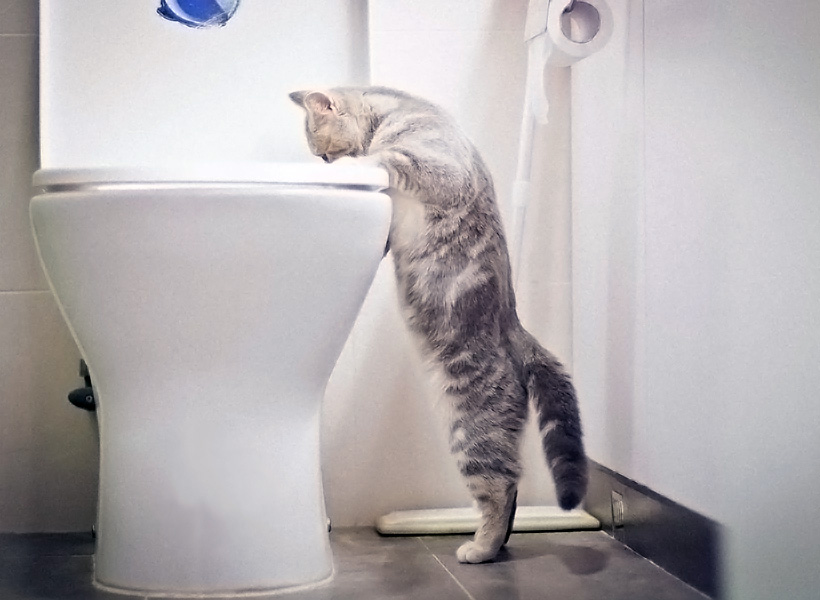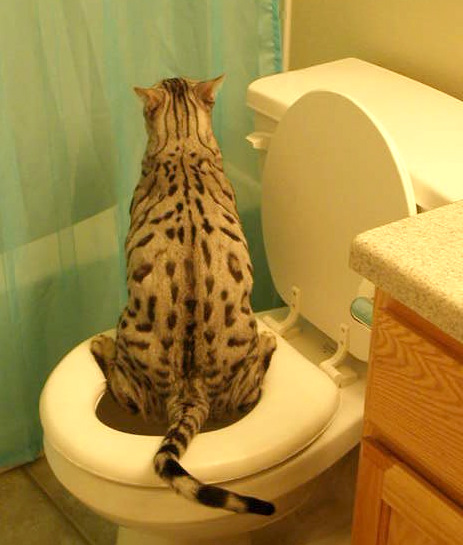Everybody has got his or her own idea about Can You Flush Cat Poo or Litter Down the Toilet?.

Intro
As pet cat owners, it's necessary to be mindful of just how we throw away our feline buddies' waste. While it might appear convenient to flush feline poop down the bathroom, this technique can have destructive consequences for both the environment and human health and wellness.
Alternatives to Flushing
The good news is, there are more secure and extra liable means to throw away pet cat poop. Consider the adhering to choices:
1. Scoop and Dispose in Trash
One of the most usual approach of throwing away feline poop is to scoop it into a naturally degradable bag and toss it in the garbage. Make certain to use a devoted trash scoop and dispose of the waste promptly.
2. Use Biodegradable Litter
Select naturally degradable feline trash made from products such as corn or wheat. These trashes are eco-friendly and can be securely disposed of in the garbage.
3. Hide in the Yard
If you have a backyard, think about hiding feline waste in a designated location far from veggie gardens and water sources. Be sure to dig deep sufficient to avoid contamination of groundwater.
4. Set Up a Pet Waste Disposal System
Purchase a pet waste disposal system especially made for pet cat waste. These systems utilize enzymes to break down the waste, decreasing odor and ecological influence.
Wellness Risks
In addition to environmental problems, purging feline waste can additionally present health and wellness risks to human beings. Feline feces may have Toxoplasma gondii, a parasite that can cause toxoplasmosis-- a possibly serious disease, particularly for expectant ladies and individuals with damaged body immune systems.
Environmental Impact
Purging feline poop introduces unsafe microorganisms and bloodsuckers right into the supply of water, posturing a considerable threat to water communities. These contaminants can adversely impact aquatic life and concession water quality.
Conclusion
Accountable pet possession expands past supplying food and shelter-- it likewise involves appropriate waste management. By refraining from purging feline poop down the bathroom and opting for different disposal methods, we can reduce our ecological impact and shield human wellness.
Why Can’t I Flush Cat Poop?
It Spreads a Parasite
Cats are frequently infected with a parasite called toxoplasma gondii. The parasite causes an infection called toxoplasmosis. It is usually harmless to cats. The parasite only uses cat poop as a host for its eggs. Otherwise, the cat’s immune system usually keeps the infection at low enough levels to maintain its own health. But it does not stop the develop of eggs. These eggs are tiny and surprisingly tough. They may survive for a year before they begin to grow. But that’s the problem.
Our wastewater system is not designed to deal with toxoplasmosis eggs. Instead, most eggs will flush from your toilet into sewers and wastewater management plants. After the sewage is treated for many other harmful things in it, it is typically released into local rivers, lakes, or oceans. Here, the toxoplasmosis eggs can find new hosts, including starfish, crabs, otters, and many other wildlife. For many, this is a significant risk to their health. Toxoplasmosis can also end up infecting water sources that are important for agriculture, which means our deer, pigs, and sheep can get infected too.
Is There Risk to Humans?
There can be a risk to human life from flushing cat poop down the toilet. If you do so, the parasites from your cat’s poop can end up in shellfish, game animals, or livestock. If this meat is then served raw or undercooked, the people who eat it can get sick.
In fact, according to the CDC, 40 million people in the United States are infected with toxoplasma gondii. They get it from exposure to infected seafood, or from some kind of cat poop contamination, like drinking from a stream that is contaminated or touching anything that has come into contact with cat poop. That includes just cleaning a cat litter box.
Most people who get infected with these parasites will not develop any symptoms. However, for pregnant women or for those with compromised immune systems, the parasite can cause severe health problems.
How to Handle Cat Poop
The best way to handle cat poop is actually to clean the box more often. The eggs that the parasite sheds will not become active until one to five days after the cat poops. That means that if you clean daily, you’re much less likely to come into direct contact with infectious eggs.
That said, always dispose of cat poop in the garbage and not down the toilet. Wash your hands before and after you clean the litter box, and bring the bag of poop right outside to your garbage bins.
https://trenchlesssolutionsusa.com/why-cant-i-flush-cat-poop/

I was introduced to that report on How to Dispose of Cat Poop and Litter Without Plastic Bags through someone on another site. If you please set aside a second to distribute this article if you enjoyed reading it. We treasure reading our article about Can You Flush Cat Poop Down The Toilet?.
Call Today